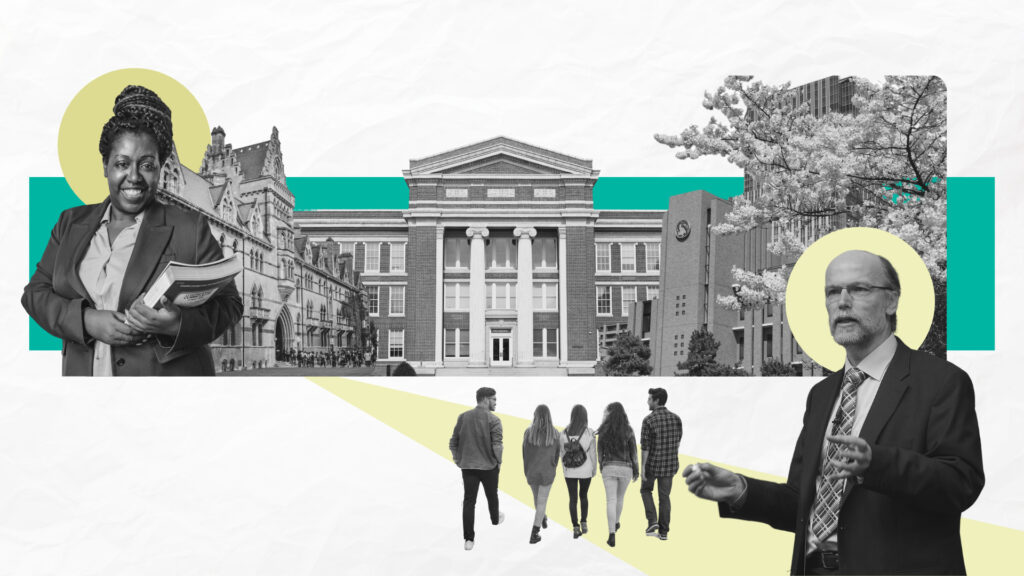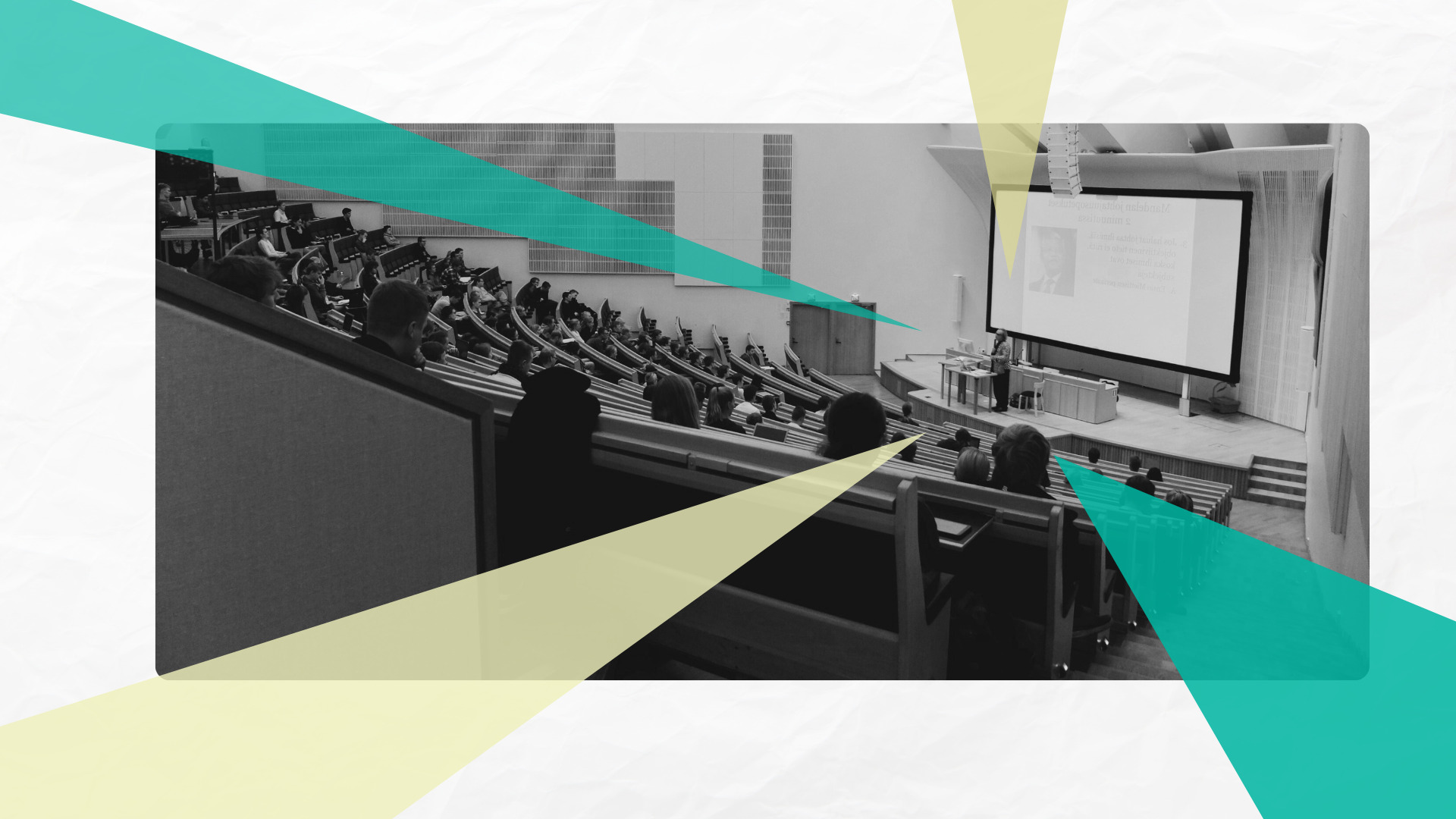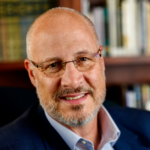Recently The Lausanne Movement launched a new Initiative: the Academic Ministry and Educators Network (AMEN), a network of those called to minister to and with Christian scholars. The desire is to further advance the vision of the Cape Town Commitment (IIA): ‘Bearing witness to the truth of Christ in a pluralistic, globalized world’ and specifically within the academic sphere. If your ministry in any way includes Christian professors (for instance, if you are involved in church planting you certainly have professors in your churches), AMEN may be of service to you. In this way we can more fully equip these Christian professors to play a crucial role in the fulfillment of the Great Commission.
But what do Christian professors have to do with fulfilling the Great Commission? Actually, a great deal, for they play a pivotal role in influencing the cultures of the world. And as these cultures are influenced with God’s truth, goodness, and beauty, cultures are more open to the gospel and to missionary activity.
Christian professors . . . play a pivotal role in influencing the cultures of the world. And as these cultures are influenced with God’s truth, goodness, and beauty, cultures are more open to the gospel and to missionary activity.
Granted, this is not the way we usually think about gospel ministry or cultural change. Yet I believe this is because few have studied the question of how cultures actually change. Rather, our ideas have developed from anecdotal evidence, assumptions, and conjectures. Therefore, most would say cultures are changed ‘one life at a time’. In other words, as more and more come to believe in Christ, eventually there will be a critical mass, and the rest of the culture will be reached with the gospel. As is often said, ‘Cultures change when people change.’ The analogy is given of a bowl of soup. As more and more salt is added, eventually there is a critical mass of salt, and the entire soup tastes salty. So it is with individual Christians in society—as more and more come to faith, eventually the entire culture is affected. Or so the story goes.

This traditional view of cultural change is such a widespread assumption that some will find it odd even to question it. But what is the evidence that this story is the right story? How can we be sure this is the most effective way to influence a culture for Christ? What grounds the assumption that this is how we will see the gospel permeate every nook and cranny of a society?
Not long ago research was done to see if this actually is how cultures change. The conclusion was surprising because it was contrary to our commonly-held ideas. It pointed to an often-neglected way to have greater influence in our cultures and our world for the gospel.
Gatherings
How God is Using Ministry to Christian Scholars to Grow His Kingdom Worldwide
Join this webinar on 12 July at 08:00 CST | 13:00 UTC to understand how Christian scholars advance God’s kingdom through their research, teaching, and leadership on campuses worldwide.
Dr James Hunter is a Christian professor at the University of Virginia (USA). As a sociologist, studying cultures and how they change is his area of professional expertise. He also directs the Institute for Advanced Studies in Culture at UVA, giving leadership to the exploration of a wide range of issues evaluating cultural influence. So several years ago Dr Hunter went to work on this question, in part to help Christians think more deeply about how to engage cultures with the gospel. The results were published in his To Change The World (Oxford University Press, 2010).
So what did he discover? Hunter begins by affirming our deep desire to change our cultures:
The passion to engage the world, to shape it and finally change it for the better, would seem to be an enduring mark of Christians on the world in which they live. To be Christian is to be obligated to engage the world, pursuing God’s restorative purposes over all of life, individual and corporate, public and private. This is the mandate of creation (p. 4).
However, he observes that a majority of US culture (his context and research demographic) rejects secularism: ‘. . . today, only 12 to 14 percent of the population would call themselves secularists. This means that in America today, 86 to 88 percent of the people adhere to some faith commitments’ (p. 19).
Therefore, if the traditional view of cultural change is correct, the United States should be very ‘salty’ with faith. Yet the U.S. is getting more secular, not less: ‘And yet our culture . . . is intensely materialistic and secular’ (p. 19). The traditional view doesn’t seem to match the data.
On the other hand, we have examples of small groups of people that seem to be having widespread influence on culture. Hunter offers two examples. First is the Jewish community. They have almost never made up more than 3.5% of the American population. Despite their small numbers, their influence is far-reaching in ‘science, literature, art, music, letters, film, and architecture . . . made in the context of often [restrictive] anti-Semitism’ (p. 20).
A second case study Hunter offers is the LGBTQIA+ community, which is approximately 3% of the U.S. population. Yet this tiny minority is having unparalleled influence in all levels and aspects of our culture. Hunter observes that if the traditional view of cultural change were correct, ‘ . . . then the influence of various minorities . . . would be relatively insignificant. But again, in these instances and in many others we can draw from history, we know this is not the case’ (p. 21). So what is it that these and other minority cultures have and leverage so well to change their cultures?
. . .groups who change their cultures have two things in common. First, they value having representatives in positions of cultural influence. Second, [they] come together in social networks to leverage their individual influence.
Hunter concludes that the groups who change their cultures have two things in common. First, they value having representatives in positions of cultural influence. Contrary to the ‘bottom-up’ traditional understanding of cultural change, Hunter argues that change (at least in most cases) occurs ‘top-down’ through the influence of a relatively small number of people who are in positions of influence.
Second, these individuals come together in social networks to leverage their individual influence. As a result change in the culture occurs, sometimes at breathtaking speed (as has been the case for the LGBTQIA+’s social agenda in the U.S.). As Hunter summarizes, ‘[W]hen networks of elites in overlapping fields of culture and overlapping spheres of social life come together with their varied resources and act in common purpose, cultures do change and change profoundly (p. 43, italics added).

And this brings us to the important role Christian professors play in the Great Commission, and the work of Lausanne’s AMEN initiative. God has placed these men and women in universities, institutions that wield unimaginable influence in our cultures. Each day professors shape the impressionable young minds of the men and women who will be people of influence in business, media, law, politics, and the arts. So even if relatively few, Christian professors are in a position to have widespread gospel influence in their cultures.
A number of ministries globally seek to network and resource Christian professors so as to ‘equip [Christian professors] for works of service [on campus and in their disciplines], so that the body of Christ may be built up’ (Eph 4:12). The AMEN network connects these various academic ministries as a missional community, so we can all be better at this task. AMEN also seeks to serve all others involved with Lausanne who have Christian professors in their churches or ministries and wish to better equip them to be ‘the aroma of Christ’ (2 Cor 2:15) on campus.
In conclusion, as we seek to permeate the globe with the good news we must not neglect the ‘Esthers’ God has placed in our universities worldwide ‘for such a time as this’ (Esther 4:14). Please reach out to AMEN and begin a conversation with us about how we might partner together in this great opportunity for the gospel!
(Originally published as ‘Announcing The Society of Christian Scholars—Please Help Spread The Word’ and amended accordingly for the Lausanne community.)


